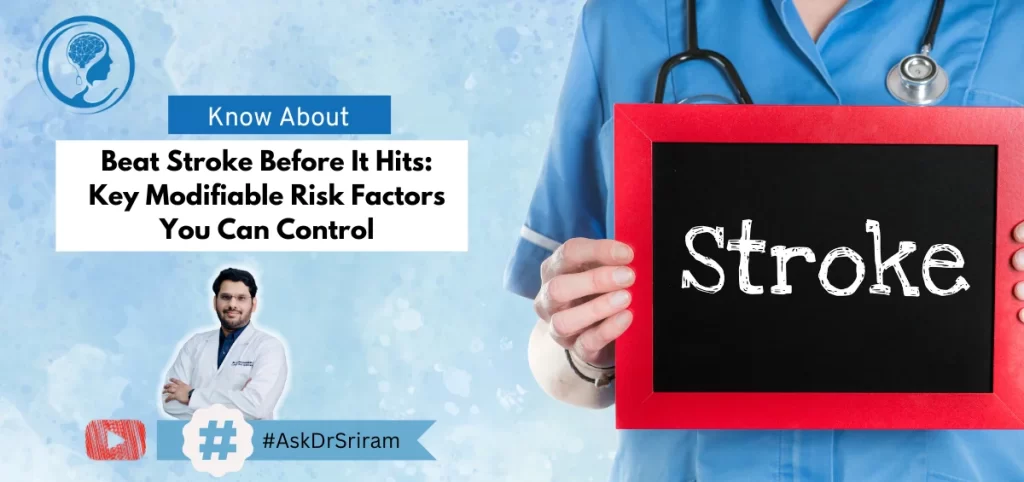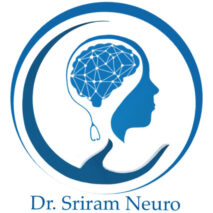
Reducing Stroke Risk: How Young and Middle-Aged Adults Can Modify Preventable Factors
In this educational article, consultant neurologist and stroke treatment specialist in Hyderabad Dr A. Santosh Sriram explains that up to 90% of all first strokes can be prevented by including healthy lifestyle choices and screening for modifiable risk factors in young & middle-aged adults.
Hypertension:
High blood pressure is a major risk factor for stroke, affecting both ischemic and hemorrhagic types. Regular blood pressure monitoring is essential to identify and manage hypertension, which is linked to a substantial increase in stroke risk.
Diabetes: Diabetes significantly increases the risk of stroke. Individuals with diabetes for over three years face a 74% higher risk of stroke compared to those without diabetes. Managing blood sugar levels effectively is crucial in mitigating this risk.
Atrial Fibrillation: This heart condition, characterized by irregular heartbeat, becomes more prevalent with age and is a significant stroke risk factor. Women, in particular, are at a higher risk of stroke due to atrial fibrillation.
Dyslipidemia: Elevated levels of cholesterol and other lipids in the blood contribute to cardiovascular diseases, including stroke. Regular screening and management of lipid levels are important for stroke prevention.
Smoking Tobacco: Tobacco use greatly increases stroke risk—active smokers are 2 to 4 times more likely to suffer a stroke, while those exposed to secondhand smoke face a 25% higher risk. Quitting smoking can significantly reduce stroke risk.
Sedentary Lifestyle: Lack of physical activity is a risk factor for stroke. Engaging in moderate to vigorous aerobic exercise for at least 30 minutes a day can help reduce this risk.
Kidney Disease: Chronic kidney disease, particularly in patients undergoing dialysis, dramatically raises stroke risk—studies indicate a 5 to 30 times higher risk in these patients. Managing kidney health is important for stroke prevention.
Sleep Apnea: Common among stroke patients, sleep apnea is often undiagnosed, with a higher prevalence in men. Proper diagnosis and treatment of sleep apnea are crucial for reducing stroke risk.
Alcohol Intake: Excessive alcohol consumption increases stroke risk. Heavy drinkers have a 28% higher risk of stroke compared to non-drinkers. Moderation is key to reducing this risk.
Diet: A diet high in fruits and vegetables is associated with a lower risk of stroke. Emphasizing these foods can be a beneficial part of a stroke prevention strategy.
Assess your risk of strokes today by consulting Dr. A. Santosh Sriram, one of the top neurologists in Hyderabad and stroke specialist in Hyderabad, for expert guidance and prevention strategies.
